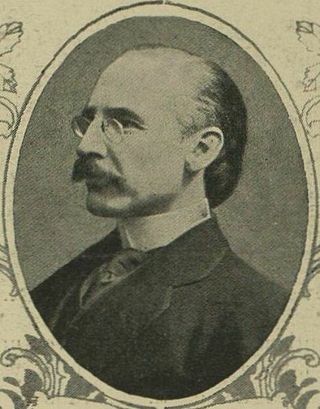Related Research Articles

The 1935 United Kingdom general election was held on Thursday 14 November 1935 and resulted in a large, albeit reduced, majority for the National Government now led by Stanley Baldwin of the Conservative Party. The greatest number of members, as before, were Conservatives, while the National Liberal vote held steady. The much smaller National Labour vote also held steady but the resurgence in the main Labour vote caused over a third of their MPs, including National Labour leader Ramsay MacDonald, to lose their seats. It was the last election in which the largest party won a majority of votes cast.
The National Labour Organisation, also known as the National Labour Committee or simply as National Labour, was a British political group formed after the 1931 creation of the National Government to co-ordinate the efforts of the supporters of the government who had come from the Labour Party. The party leaders were Ramsay MacDonald (1931–1937) and his son Malcolm MacDonald (1937–1945).

At the 1931 general election, a small group of official Liberal candidates led by former Liberal Party leader, David Lloyd George, and mostly related to him, stood on a platform of opposition to the National Government and were sometimes referred to as Independent Liberals.
Wednesbury was a borough constituency in England's Black Country which returned one Member of Parliament (MP) to the House of Commons of the Parliament of the United Kingdom from 1868 until it was abolished for the February 1974 general election.
Parliamentary by-elections in the United Kingdom occur when a Member of Parliament (MP) vacates a House of Commons seat during the course of a parliament.

The 1932 Dulwich by-election was a by-election held on 8 June 1932 for the British House of Commons constituency of Dulwich in South London.
The 1931 Gateshead by-election was a parliamentary by-election held on 8 June 1931 for the British House of Commons constituency of Gateshead.

Sir Percy Alfred Harris, 1st Baronet, PC was a British Liberal Party politician. He was Liberal Chief Whip and Deputy Leader of the Liberal Parliamentary Party.
The 1939 Westminster Abbey by-election was a parliamentary by-election held on 17 May 1939 for the British House of Commons constituency of Westminster Abbey in London.

William McKeag MSM was a British politician, soldier and solicitor. His political affiliations changed over the years from Liberal to National Liberal, back to Liberal and finally to Conservative, but he never wavered from a fierce loyalty to his native North East of England and was described in his obituary in The Times as one of the North East's leading figures, a keen publicist for the area and for Tyneside in particular.

Frederick Llewellyn-Jones, MP was a Welsh solicitor who became Coroner for the county of Flintshire and a Liberal, later Liberal National politician.

Sir James Duncan Millar was a Scottish barrister and Liberal, later National Liberal politician.

Ernest James Young was a Liberal politician. He was a Councillor in Portslade and Member of Parliament for Middlesbrough East for one term in the 1930s. He was the first Headmaster of Harrow County School for Boys, Harrow, Middlesex from 1911 to 1919.

Edward Anthony Strauss was an English corn, grain and hop merchant of German-Jewish background. He was a Liberal, later Liberal National Member of Parliament.

Richard John Russell was a British dental surgeon and Liberal later Liberal National politician.
Sir Henry Maddocks KC was an English lawyer and British Conservative Party politician.
John Frederick Eales was a British lawyer and Conservative Party politician who served as a Member of Parliament (MP) from 1931 to 1936.
Harold Roberts was a British solicitor and Unionist (Conservative) politician. After a long career in local government in Birmingham, he represented the city in the House of Commons for the last five years of his life.

The 1944 Bury St Edmunds by-election was a parliamentary by-election for the British House of Commons constituency of Bury St Edmunds, Suffolk on 29 February 1944.
The Popular Front in the United Kingdom attempted an alliance between political parties and individuals of the left and centre-left in the late 1930s to come together to challenge the appeasement policies of the National Government led by Neville Chamberlain.
References
- 1 2 Who was Who, OUP 2007
- ↑ The Solicitors’ Journal, 1943 p453
- ↑ Craig, F. W. S. (1983) [1969]. British parliamentary election results 1918–1949 (3rd ed.). Chichester: Parliamentary Research Services. p. 81. ISBN 0-900178-06-X.
- 1 2 3 Craig, op. cit., page 488
- ↑ "Death of Sir Henry Maddocks, K.C. Distinguished Old Wemian. Brilliant Forensic Career". Shrewsbury Chronicle. 12 June 1931. p. 6.
- ↑ The Times, 17 October 1924 p8
- ↑ The Times, 21 February 1931 p6
- ↑ The Times House of Commons 1931; Politico’s Publishing, 2003 p96
- ↑ The Times, 11 July 1932 p12
- ↑ The Times, 22 September 1932 p10
- ↑ David Dutton, A History of the Liberal Party in the Twentieth Century; Palgrave MacMillan, 2004 pp127-129
- ↑ The Times, 23 June 1938 p9
- ↑ The Times, 15 August 1938 p13
- ↑ The Times, 2 December 1943 p7